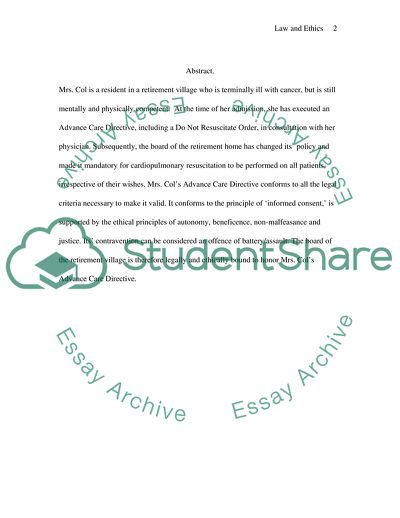Cite this document
(Law and Ethics in Nursing Practice Case Study Example | Topics and Well Written Essays - 2500 words, n.d.)
Law and Ethics in Nursing Practice Case Study Example | Topics and Well Written Essays - 2500 words. Retrieved from https://studentshare.org/law/1709336-law-and-ethics-in-nursing-practice
Law and Ethics in Nursing Practice Case Study Example | Topics and Well Written Essays - 2500 words. Retrieved from https://studentshare.org/law/1709336-law-and-ethics-in-nursing-practice
(Law and Ethics in Nursing Practice Case Study Example | Topics and Well Written Essays - 2500 Words)
Law and Ethics in Nursing Practice Case Study Example | Topics and Well Written Essays - 2500 Words. https://studentshare.org/law/1709336-law-and-ethics-in-nursing-practice.
Law and Ethics in Nursing Practice Case Study Example | Topics and Well Written Essays - 2500 Words. https://studentshare.org/law/1709336-law-and-ethics-in-nursing-practice.
“Law and Ethics in Nursing Practice Case Study Example | Topics and Well Written Essays - 2500 Words”. https://studentshare.org/law/1709336-law-and-ethics-in-nursing-practice.


